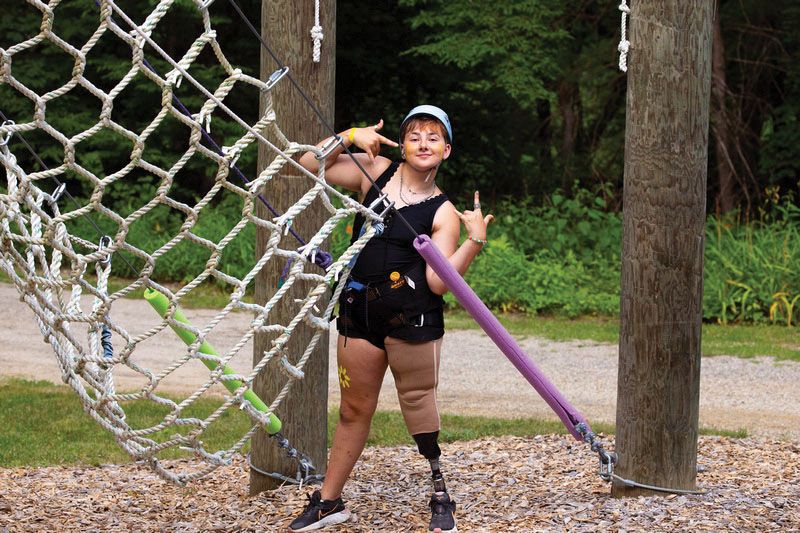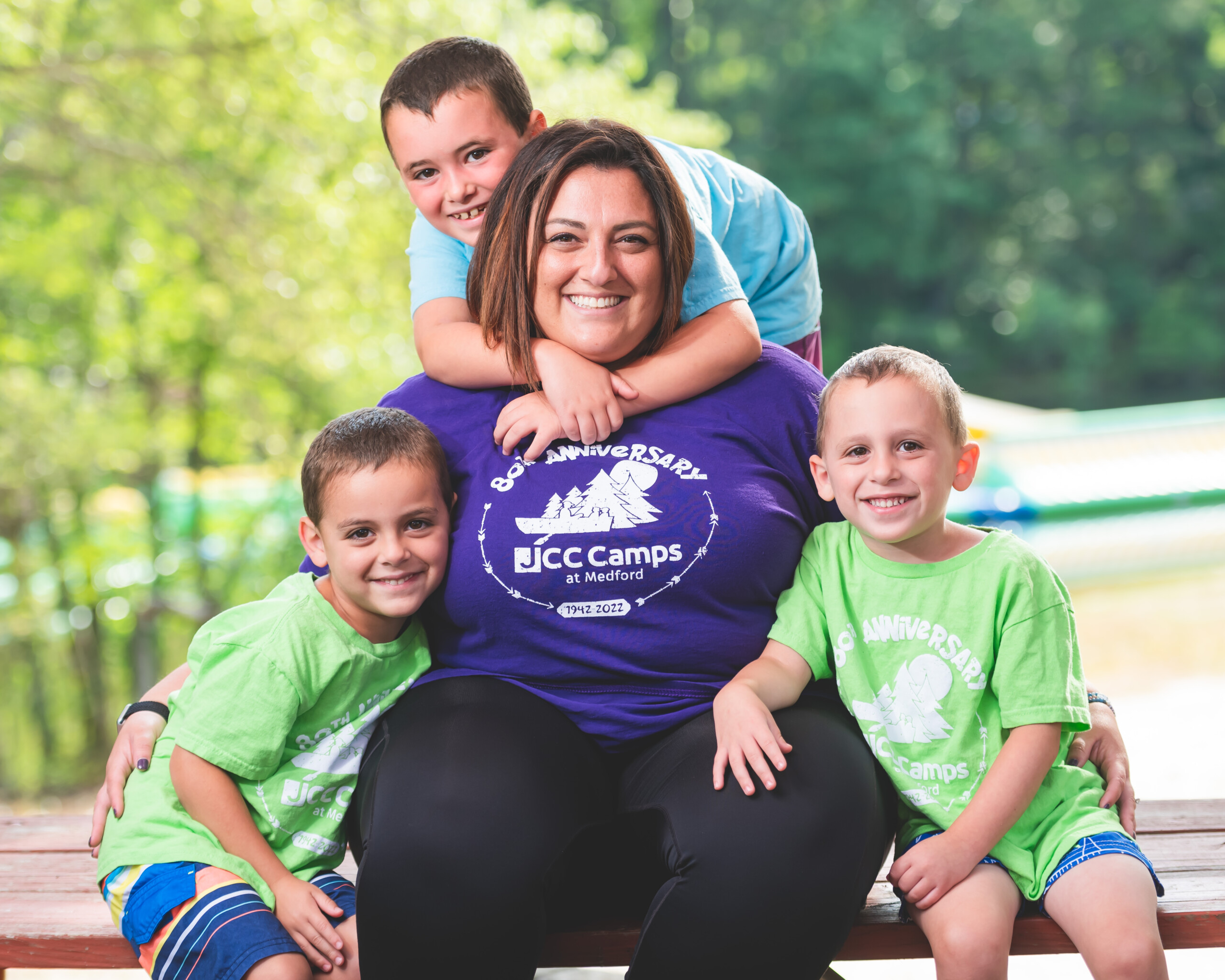When your children go to camp this summer, will you really let them go?
Camp directors see “kid-sick” parents far more than homesick campers, says Bob Ditter, a licensed therapist who specializes in summer camp and consults for the American Camp Association (ACA).
Let Go
“Trying to make things perfect for your children does not do them any favors,” says Andy Pritikin, director of Liberty Lake Day Camp in Burlington County, NJ.
“Parents often look out for their children’s best interest to the point of sabotaging the ‘teachable moments’ that can occur in social learning experiences at camp. There are inevitable compromises, difficult interactions, confrontations and times when kids need to speak up for themselves.”
“Sometimes parents have to allow children to fail and then succeed in order to have them grow into resilient and strong adults,” he adds.
Tori Barrett, director of the Girl Scouts of the Chesapeake Bay Council’s Camp Country Center, a day camp in Hockessin, DE, says that parents feel more comfortable “letting go” when they do their homework to find the right camp and have realistic expectations about what camp is and what the camp program offers.
 “Parents can help children have a successful camp experience by having a roadmap,” she says. “They should know where they want to end up, then involve their children in plotting a path to get there. Choose a camp program that is in keeping with what you want to accomplish, then trust in the camp staff and the camp experience, and your child’s resilience, to meet those expectations.”
“Parents can help children have a successful camp experience by having a roadmap,” she says. “They should know where they want to end up, then involve their children in plotting a path to get there. Choose a camp program that is in keeping with what you want to accomplish, then trust in the camp staff and the camp experience, and your child’s resilience, to meet those expectations.”
Howard Batterman, owner and director of Sesame/Rockwood Day Camps in Blue Bell, PA, believes that children enjoy their summers not just for the break from school, but because camp offers a way to become more well-rounded.
He agrees that when parents find a camp program that meets their needs, they should stick with it. “Parents face an overwhelming variety of summer programs and activities. In trying to ‘collect’ experiences for their children, parents may try to pack too much in. When parents limit children to perhaps one or two programs, children are less hurried and have time to feel a sense of comfort in each one,” he says.
Communicate
Parents, too, must feel comfortable with the program and be positive about the camp experience. “Before the season, parents often project their anxieties upon their children, especially with first-time campers. It’s difficult for parents to understand that children are naturally resilient and most get along fine instantly,” says Pritikin.
“ Communication is key,” says Batterman. “Parents should visit a day camp or call an overnight camp director every so often. Camps only have a short time to work out situation, as opposed to the academic year. It’s up to parents to let camp leadership know before and during the summer if their child needs extra attention in a certain area or is experiencing any difficulties. Camp staff and parents working together helps guarantee that the camp experience will provide a lifetime of memories.”
Communication is key,” says Batterman. “Parents should visit a day camp or call an overnight camp director every so often. Camps only have a short time to work out situation, as opposed to the academic year. It’s up to parents to let camp leadership know before and during the summer if their child needs extra attention in a certain area or is experiencing any difficulties. Camp staff and parents working together helps guarantee that the camp experience will provide a lifetime of memories.”
Barrett is surprised by how many parents apologize for calling the camp with questions or concerns. “Camp directors would much rather have parents ask questions and be a part of the process,” she says. “It’s important to align yourself with camp leadership and build a relationship with the camp and the director. When parents don’t stay close to the camp, they may get concerned over small things, or not trust the camp to take care of their child.”
“Sometimes it is difficult to express things, but having all the information discussed or in writing goes a long way in providing that positive camp experience for not only the parents and the child, but even the other children at camp,” says Batterman.
Follow the Rules
Parents should also trust that at camp, like at home, rules exist for good reasons. Because it’s difficult for kids to fully engage in the camp experience when they are secretly texting or calling parents or friends from home, most camps have a “no cell phone” policy.
Yet every summer, every camp director finds families that smuggle in cell phones. Like Bob Ditter, Barrett knows of parents who send children to camp with two phones — one to “give up” when counselors collect them, and another to hide “just in case.”
 “When parents conspire with kids to break the rules, what the parent is really saying is that camp isn’t a safe place and that their parents are indispensable,” says Ditter. “That strategy doesn’t teach independence or encourage a child’s healthy growth and development.”
“When parents conspire with kids to break the rules, what the parent is really saying is that camp isn’t a safe place and that their parents are indispensable,” says Ditter. “That strategy doesn’t teach independence or encourage a child’s healthy growth and development.”
Pritikin is bewildered by parents who teach kids that it’s okay to break rules. “When parents give a child permission to not participate in an activity such as free swim just because the child doesn’t like it, the child misses out on learning a valuable life skill. Instead, he learns how to manipulate a situation to his benefit.”
At Camp Country Center, a daily lunchtime tradition is to share a fun story about something kids have tried and failed at. “This encourages girls to try new things, make choices, and develop life skills,” says Barrett. “The message is that you can be as brave as you want to be because even if you fail, you’ll still have a great story to share.”
“Letting your children go out on their own into a new environment and community of caring people is the best possible thing you can do for them this summer. They will remember it for the rest of their lives, and thank you for it when they get older!” says Pritikin.
Ellen Warren works with the American Camp Association Keystone Section, which serves camps and camp families in Pennsylvania and Delaware.






